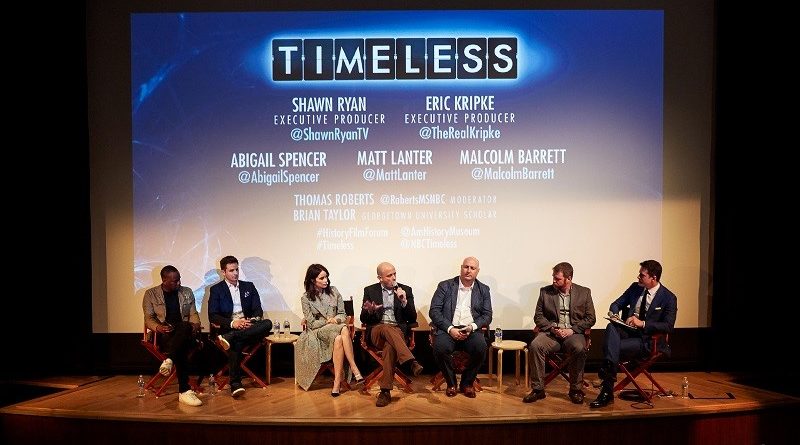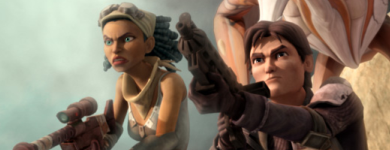Telling Underrepresented Stories with NBC’s Timeless
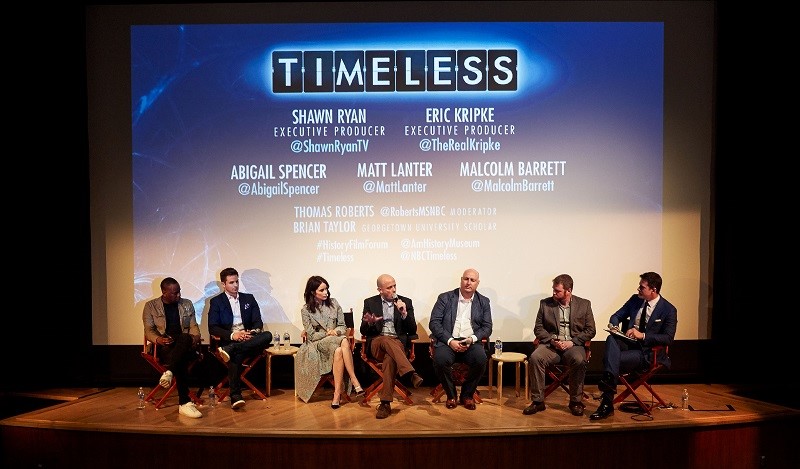
by Priya Chhaya
Historians are the original time travelers.
We spend our careers listening to the voices of the past, making connections to understand and learn from worlds long gone, often working to tell stories of people and places that are hidden from view. The importance of telling those stories in the public realm is mostly left to museums and cultural institutions – and while progress has been made, it is still an uphill battle. This is mirrored in the world of pop culture, with its ever-present tension of whether the history being told is fact or fiction, which often results in the same stories being told over and over again. That is not the case with NBC’s Timeless.
When FANgirl reviewed Timeless last year I was mildly interested, but hesitant, knowing how other shows treated travels into the past. Now, 16 episodes later I can say this freshman show, though not entirely perfect, succeeds in taking on history in a way that is both inclusive and entertaining.
A quick primer: In Timeless three individuals – Lucy Preston, a professor of the History and Anthropology of American Political Movements; Rufus Carlin, a theoretical engineer; and Wyatt Logan, a Delta Force Master Sergeant – go back in time to prevent the villain Garcia Flynn from changing the past. As we move through the series we learn of an even bigger threat, a conspiracy involving an evil cabal called Rittenhouse that has manipulated time in order to place invisible stranglehold on the world. And hijinks ensue.
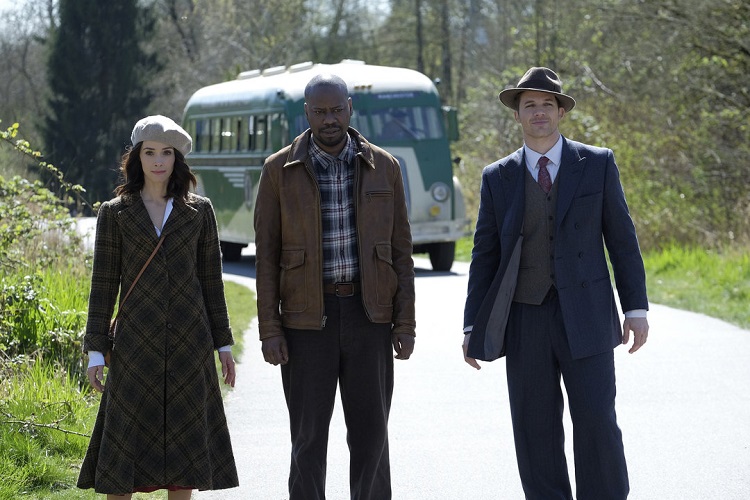
While the show uses time travel as a way to test the mettle of the characters and their strength of will, it also uses the vehicle to tell the stories of a full American past.
During an interview with the cast and showrunners as part of the History Film Forum, a program hosted by the National Endowment for the Humanities and the Smithsonian Institution, I asked showrunners Shawn Ryan and Eric Kripke about the intentionality of telling these broader stories. While Kripke jokingly said that they were “storytellers, [which is a] step away from carnies” he emphasized that:
“We very specifically and consciously wanted to tell underrepresented stories. We very much spoke about how everyone thinks of history as the history of rich white dudes, when there’s a completely vibrant and very real and very moving history that exists that not a lot of people know about. … And if you’re making a show about history, you want to tell stories that people don’t know. And part of it, I’ll freely admit, what are the stories we can surprise our audience with, and who are characters we can introduce our audience to that they never would have heard of before, in, and around great events in history. But a lot of those are people of color, females, [and] there’s a whole world of people that have such a crucial effect on who we are, who we become.”
Ryan emphasized that this approach is further cemented in the writer’s room, where “we have a lot more control” – as opposed to the directors since Timeless was a first year show. “It was really important to us that in the writers’ room there be lots of different perspectives.” These choices are clear even in the broader casting of the show where, more so than any other show I’ve watched (except maybe The Flash), it looks and feels closer to modern America.
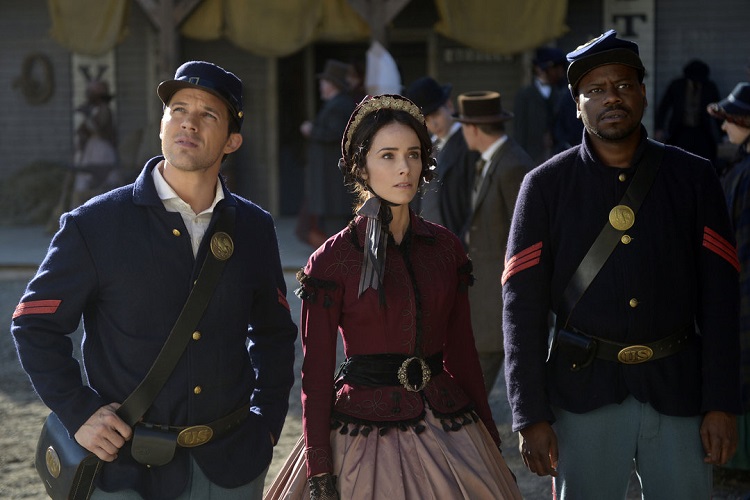
And this is another reason why I really enjoy the show. Every single character is there for a reason, and provides a means in which the audience can forge a connection, not only to the individual, but also through situations and events in time.
During the History Film Forum panel, Abigail Spencer was asked what it felt like to play a woman like Lucy. She said that, when she was growing up:
“I wanted to find myself in the stories, I wanted to see myself in the people that were playing out on television. It’s about the emotional component to play a women, to play a character that you can project yourself onto, who [is] experiencing it for all of us. That’s the joy of playing Lucy, she’s so in love with all of these people and these moments in history, and then she gets to experience it for herself and hopefully that’s what you all can do find yourself in Lucy’s shoes and Wyatt and Rufus’s shoes.”
And while it shouldn’t be a surprise that I, the historian, relate a lot to Lucy’s experience in the show (how does she remember all those dates!), the more important piece of my interview with Preston, Malcolm Barrett (Rufus), and Matt Lanter (Wyatt) was a broader conversation about empathy and compassion.
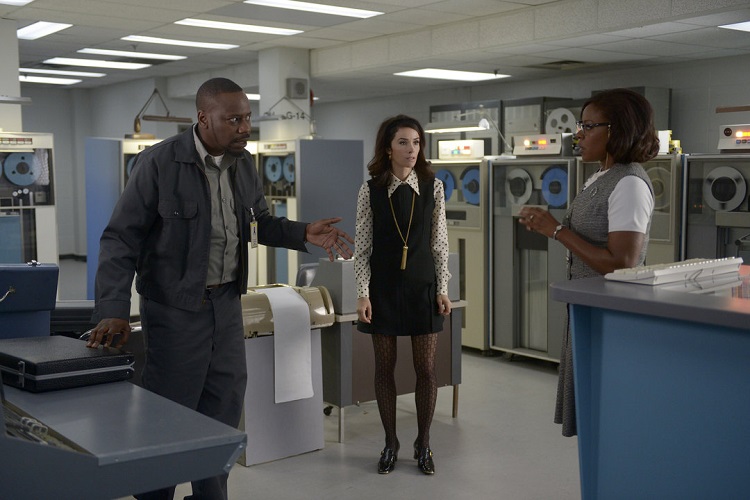
In talking about his character, Barrett describes how “Rufus, whatever fears he has … is probably just going to go along with whatever happened during that time. As much as he can keep his head down – which is what most individuals would do [in some of these situations] – which I think sort of humanizes the actions of the people, before we sit there and judge every person and every action that happens before us.” He goes on to say that a lot of this has to do with the fact that Rufus “doesn’t know a lot about history, he just knows that shit sucks for black folks.”
Kripke said that this emphasis on character, along with the stories they choose to tell, was integral to the shows development. For them it was very much “characters first and genre second.”
Perhaps the best example of how the show tells underrepresented stories and expands on characters is illustrated in the “Murder of Jesse James” (episode 12). In this episode Lucy, Rufus, and Wyatt follow Flynn back in time to right before Jesse James was murdered. This episode challenges each characters in a different way, but none so much as Wyatt who, as Lanter states, starts “to see things start to shift and change … where Wyatt is just [like] ‘shoot the guy,’ and then Lucy ends up killing him, [which] creates a shift in Wyatt as well, in trying to do the right thing, and not necessarily what the mission mandate says to do.”
It is at this moment that Spencer states, “You start caring, and here’s the human story, when you start caring about the team and … when you start to fall in love collectively because at the end of the day it’s a love story between Wyatt, Lucy and Rufus – you know they’re becoming a team, becoming family.”
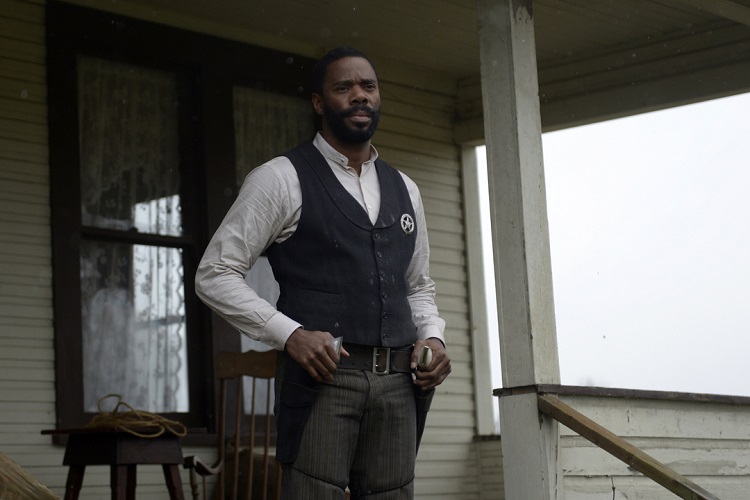
But my favorite part of that episode, as well as the interviews and the History Film Forum panel, was the discussions surrounding Bass Reeves, thought to be real Lone Ranger. Kripke describes how:
“Our writer Jim Barnes pitched it to us. The guy was so amazing… The fact that the best lawman in the old west was an African-American, an escaped slave, [and] was defending the law of a country that a few years early held him in bondage, but still believed in the purity of the law, and insisted, whenever possible [to] bring people in alive and making sure [they] had due process. I had no idea who he was before Jim pitched him to us … I’m sure historians knew who he was, but I sure as hell didn’t, and to be able to learn that and then present it to a couple million people is a treat.”
That moment of discovery, that recognition that some stories do not get told, is verbalized by Rufus who, at the culmination of the episode, looks at Reeves (played by Colman Domingo) and asks him to talk to reporters because, “if you don’t tell your story someone else might, some white dick in a mask might end up the legend instead of you. … People are going to want to know your story. Today, tomorrow, or even a hundred years from now.”
While Timeless has not yet been renewed for a second season by NBC, I hope it will be so that it can continue to broaden out the adventures of Lucy, Wyatt, and Rufus while also telling us more stories of the American past today, tomorrow, and for many years to come.
Want more from the panel? Read this piece by my colleague Sarah Heffern on SavingPlaces.org and watch the video from the History Film Forum.
Priya Chhaya is a historian who loves the written word. When she’s not reading anything she can get her hands on she is writing about the past and its intersection in our daily lives on her personal blog …this is what comes next.
- Imagining a New World at FUTURES - January 10, 2022
- Escape to WandaVision - February 24, 2021
- Regency Daze and the Magic of an RPG - January 5, 2020

